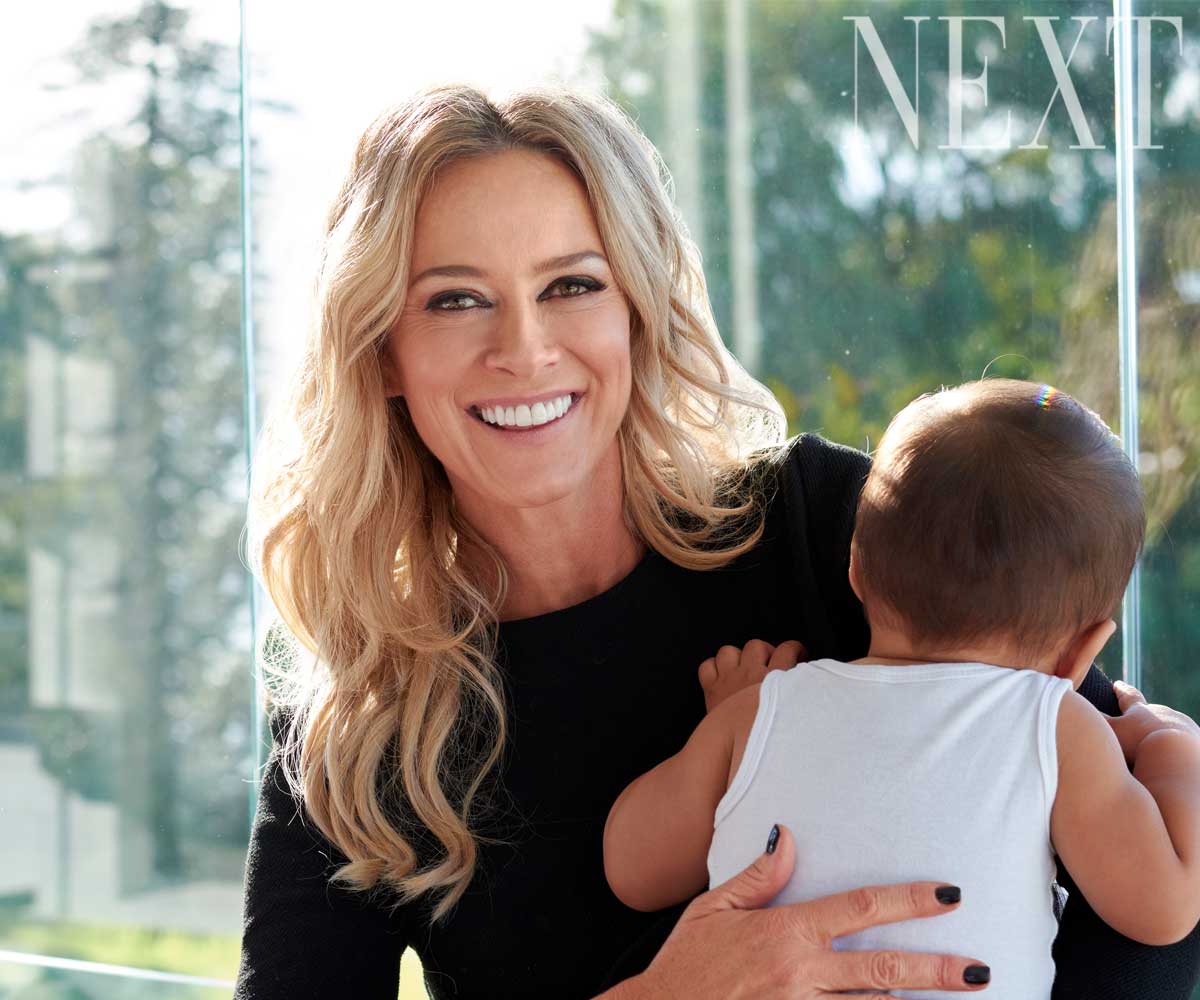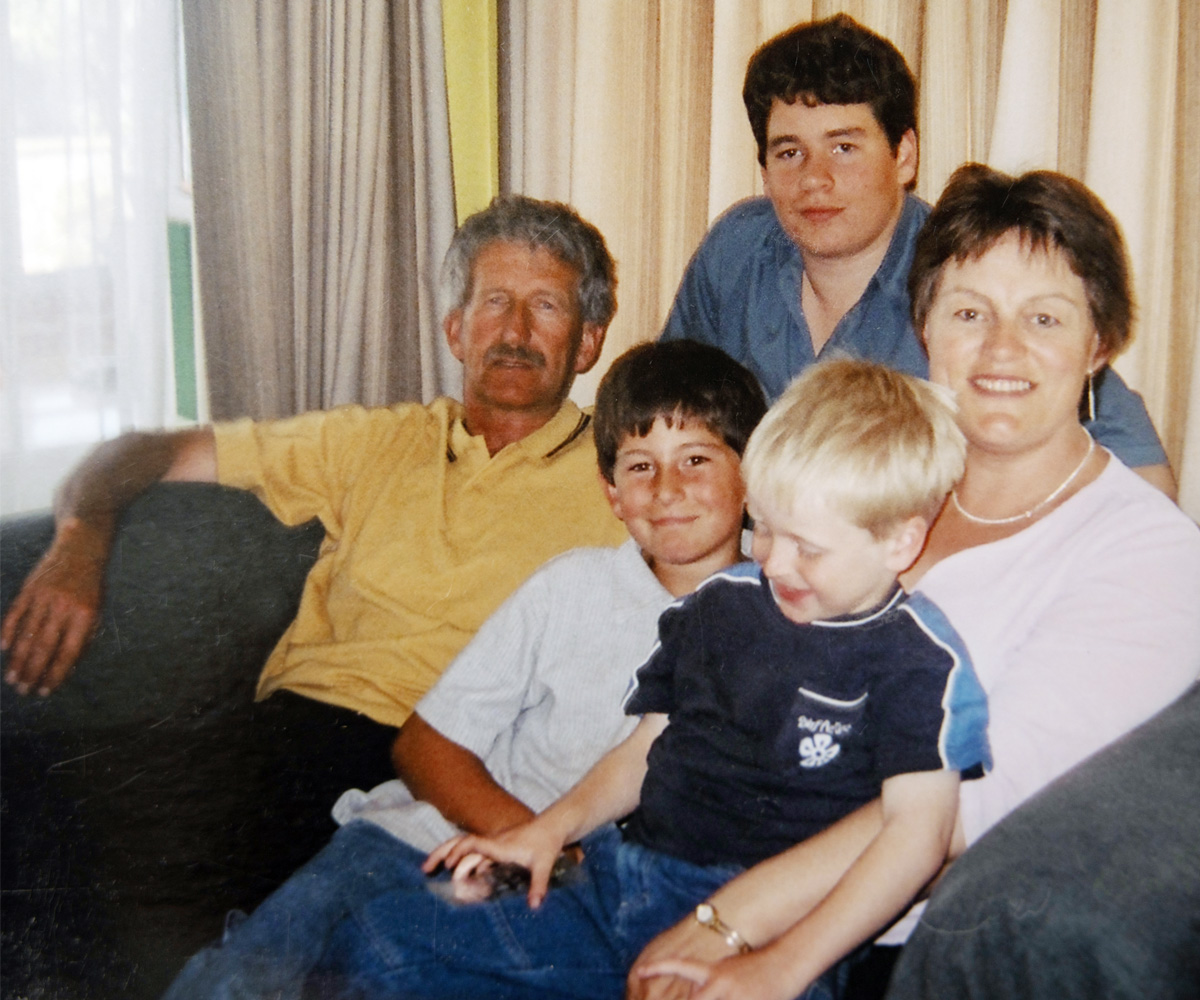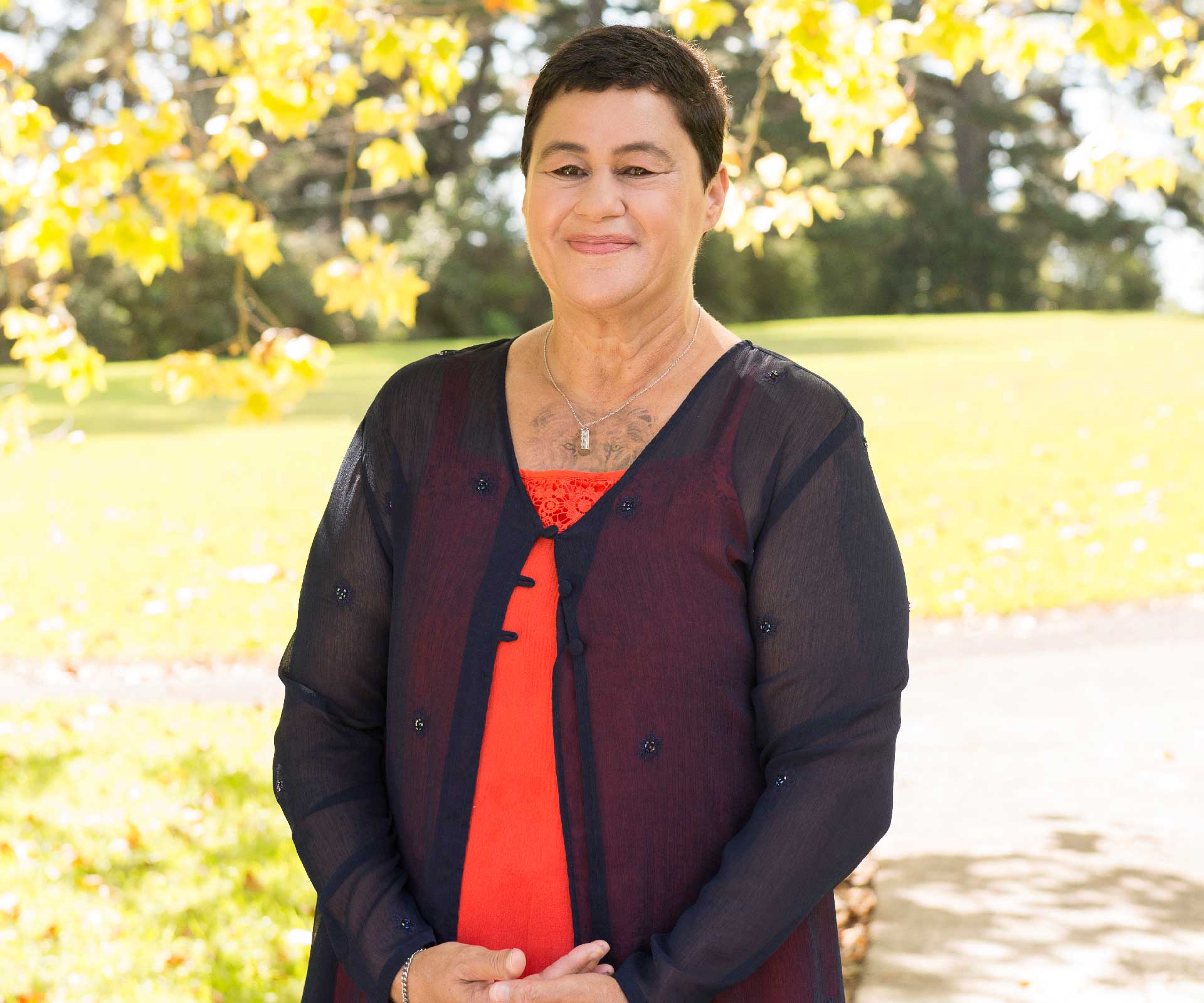Oranga Tamariki is currently under scrutiny for its policies and procedures around placing vulnerable children in care. But for foster parent Stacey Beatson, the opportunity to help Kiwi children in need has been nothing short of life-changing.
Tell me a bit about your background…
Of Ngapuhi descent, I was raised in Ahipara, a small town in the Far North. It’s a beautiful area but there’s a lot of poverty, a lot of unemployment. Growing up in a place like that, you see it all, but my mother and father always had a real heart for the community. If there was a baby crying down the road, my mother would go and offer help, on many occasions breaking up fights. She was pretty fearless and very non-judgemental, and I think I took that on board from a very young age.
Whenever I heard stories of abuse, whether it was locally or on the news, I always had a very deep stirring in my heart,
and it’s not something that went away when I moved to Auckland and established a very different life here as a personal stylist.
My whole career has followed the theme of transformation. I’ve been a hairdresser, makeup artist, stylist, image consultant, personal shopper… basically my whole aim in life is to make things beautiful. The children who come into my care are no exception. I’m here to help them transform into the best, most beautiful people they can be.
How did you get into fostering?
Around the beginning of 2018, I had what I thought was a great idea for a fashion show that would fundraise for vulnerable children. I took this idea to a fostering organisation called Immerse, thinking, ‘Lucky you, I’m going to do this amazing thing for you’. Instead, they were like, “Come to one of our information evenings, learn a little bit more about us, and then we’ll talk.” So off I went.
I’ve always had a huge amount of aroha for children, but I’ve been single for the majority of my adult life and I’ve never been one to think, ‘My biological clock’s ticking, I must have a child’.
Adopting or fostering had never crossed my mind. But there I was, sitting at the back hearing all about this organisation and the need for foster parents, and then they talked about the high percentage of abused young Maori and Pacific Island girls. At that moment, I just knew I had to do something.
What was the process from there?
Babies don’t just get handed to people – the process is rigorous, as it should be. There was psychometric testing, personality profiling, police checks, verbal references, written references – not just for me but for my flatmates too. Then came the training, which I did through Immerse. They call it Trust-Based Relational Intervention or TBRI, and it teaches you how to relate to and establish trust with children who have suffered trauma.

You signed up for emergency placements, meaning the children that come into your care are in such immediate danger that they have to be removed quickly, before caregivers within their own whanau can be found and vetted. What happened when you got your first call?
You can get anywhere between two hours’ and two days’ notice that a child is coming your way. My first baby arrived late one Friday night. Social workers from Oranga Tamariki brought her from the hospital, still wrapped in her hospital blanket and with the tiny little identification band around her wrist. She had multiple injuries and was very scared, but I took one look at her and said, “Is that Aunty’s girl?” She looked up at me and she just knew I was her person.
She was precious to me right from that moment, and I kept her close, telling her how incredible and strong and brave she was, and how easily we were going to get through this together. She had a lot of nightmares in the beginning, so I just kept telling her that everything would be fine.
I must’ve reassured her 40 times a day, “It’s all right my girl, Aunty’s here, you’re safe”, and over a period of time, she knew it.
What support systems did you have in place to help you with the transition?
My friends, whanau and neighbours were incredible. I have a sister who’s a midwife and a special care baby nurse, so she was fantastic at helping me wash and dress the baby, which was difficult with her injuries.
The evening I got that first call, a friend of mine put the word out to all of her mum friends. The next day, we had three prams, two beautiful bassinets, cots, all of the clothes that the baby needed, formula – everything! Later on, my girlfriends would come and mind her for a couple of hours so I could do the housework, and many of my clients donated money or overpaid me. The huge amount of aroha shown was very humbling, and being such an independent person, it was a great lesson for me in accepting help.
How did your flatmates cope with the change of dynamic?
Considering how much it’s impacted their lives, they’ve been amazing. It’s certainly disruptive – our home is more peaceful and relaxed when there are no children here and it’s definitely a lot tidier! But I make sure to keep the noise levels throughout the night to a minimum. My flatmates have said it’s been an incredible, eye-opening experience for them, one commenting that it’s shown her the true meaning of ‘it takes a village to raise a child’.
How did the expectation of fostering compare to the reality?
I’m sure it’s the same for all new parents – you have these ideas about making everything beautiful all the time, but that’s not how it works! The day the baby got her cast off her arm, I had a romantic notion that we were going to go home and I was going to give her a gorgeous bath, but when I put her into it, she screamed blue murder. It was the same when we got dressed up
to see Santa last Christmas. She wasn’t having a bar of the cute clothes I picked out for her, so a singlet and nappy had to do! But if she was happy, that’s how we’d roll.

Were you worried about being a single foster mum?
I’ve had no qualms about doing it as a single person. The children who have come to me have all needed undivided care and attention, and my situation has enabled me to give them that without the distractions of a partner or other children. Of course, bringing a foster child into a fuller household can work well too, but interestingly, at that first information evening I went to, I learned that single people make some of the best foster parents. Yes, there’s a lot of sleeplessness, but when you see the results you’re getting, there’s no hardship in getting up 10 times in a night or not going out any more. It’s an absolute privilege to put all of that aside and focus on healing and restoring the whole wairua or spirit of this baby.
What adjustments did you have to make to your work life?
I was always rushing around with the baby on me in a little front pack. For months we were a package deal, and it became a familiar sight to everyone and a very natural feeling for me to have her attached to me.
The brands I work with were phenomenally generous. I do a lot of work with Trelise Cooper, and not only did she give the baby lots of beautiful clothes, but she’d also offer to look after her so I could get some rest. The guys at Workshop gave me one of their car parks beside the shop to make everything easier for the two of us. And I could feed and change her anywhere – nothing was ever a problem.
How do you reconcile the glamour and wealth you see in your job with the violence and poverty you’re exposed to as a foster mum?
You can certainly question why it is that some people have that life, and why this child was born into those circumstances, but it’s not helpful to do that, and I’ve never seen my career as
shallow or frivolous.
I know how enriching it is for people to feel good about themselves, and I don’t have any trouble marrying the two worlds in my mind. I understand the importance of beauty, and I think the world needs more of it, whether it’s in a child’s spirit being restored, or in a woman having beautiful hair and feeling confident in herself.
My clients are very successful people, and many of them have been through some interesting life experiences. I think it’s great for the children who come into my care to see different ways of living. It doesn’t have to be about aspiring to have a nice house or car.
It could be like, ‘I remember when I’d go to stay with my aunty and her friend had that amazing business’ or ‘I loved watching her cook and now I want to learn to cook.’ You never know how you might affect a child in the time you have them.
What’s it like falling in love with these babies you know aren’t yours forever?
When I began considering fostering, many people told me to protect my heart and to hold some of myself back, but I couldn’t do it – I have to give these babies everything I have and love them with all my heart. Of course, that does put you in a very vulnerable position, and the one mistake I made with my first baby, which I’ve never made again, was hoping that I would get to keep her.
The goal is always reunification with the whanau, and I know that’s the best thing for the child, but the day Oranga Tamariki rang me and said that they’d found the right family members to take her, I cried so much that my nose bled for hours. We’d been on such a journey together by then – three months joined at the hip – and as happy as I was for her, I was heartbroken. The pain was excruciating, it’s hard to explain the depth.

How did you cope with that loss?
I just had to keep saying to myself, ‘You’ve done your job, Stacey, and you’ve done it really well’. I could see that the family members who took her in were selfless, and they were very open to coming to my house and spending time with her, learning her routines and the things that were familiar to her, letting me show them how I put her down at night, anything to make the transition as easy for her as possible.
I have a huge amount of respect for them. They’re busy people with three children but as soon as they were contacted they said yes, they wanted her, and they never looked back.
And now you go into each new situation with clear boundaries…
Exactly. My job is to keep my babies happy and safe, to help them heal, and to advocate for them – to act as their voice with their caregivers, social workers, lawyer and whoever else is part of their team.
After my first baby, who was with me for three and a half months, I took in two brothers – a 20-month-old who stayed with me for 10 days, and a five-month-old who I had for five weeks. I loved both of them, but for my own self-preservation I never hoped that they would stay with me forever, and I never would in future.
You still have a special relationship with your first child, though…
She lives about an hour away from my parents, so I see her about every three weeks. The family bring her to see me whenever they visit Auckland, usually leaving her with me for a few hours
or even the whole day so she has that time with me. Her mummy and I share a real understanding of the importance of ‘aunties’ in people’s lives – sources of friendship and encouragement and strength and wisdom.
That’s what I’ll always be to her. She’s still too young to understand it, but she knows I’m part of her and she’s part of me, and she’s always very happy to see me. The love is mutual.
What was the first reunion like?
It was very traumatic. It was about a week after she’d left me and she cried and cried, and clung to me and tried to bury herself in me. It was very primal, like, ‘Where have you been?!’ But then a few moments later, she was overcome with joy, looking back and forth between me and her mummy like, ‘Look, she’s here!’ Her mummy said to me once, ‘I wish I could bottle you for her, Aunty, and always keep her happy like she is when she sees you’. It was a hard transition for everyone, but the time I spend with her now is so precious.

What keeps you going during those difficult transition periods?
You have to trust the process and know that being with her family is the best thing for her. There’s a lot of putting your own feelings aside, and not just mine – I have a huge amount of respect for the families my babies have gone to. It’s very self-sacrificing taking on a new whaˉnau member like that, and they’re amazing people, all of them.
You’re still involved in the lives of the other babies you’ve had in your care. Why is this continued connection important to you?
In some ways I think it would be easier to just go cold turkey, but there’s something to be said for maintaining that relationship with them and their new families. I always make sure I’m available to them to offer support or insights into what the baby might like, and I’ve continued to encourage them all to come to the house and be a part of my life. Knowing how they’re progressing on their journey encourages you to keep going and keep your heart open about fostering.
Did the fact that ‘the system’ seems to get a lot of criticism affect your decision to become a foster parent?
You only ever hear the bad stories, but there’s an enormous amount of time and effort that goes into restoring a child and I think the professionals behind that need to be given more credit. They’re doing the best they can within the frameworks we have. I made up my mind really early on to focus on the positives of the system, not the negatives, because I think if you get disillusioned with the system, it’s over.
I don’t really think it’s the system that needs to change, it’s our culture. We need to take this generation of children that are coming through now, and raise them up in such a way that would make it very foreign and unlikely for them to repeat the cycle later in life. And that’s not up to the system. Families and the wider community need to take a lot more responsibility for one another, and address the cultural problems and make changes. There’s no excuse for this country to have the child abuse and infant death rates it has, and that has to be resolved at a grassroots level – through iwi, through whanau, through families.
What do you think is the key to this?
I don’t have all the answers, but I believe that stronger family units and re-education would be a great start: teaching young people – girls especially – to value themselves and their bodies; getting alongside the people who have not had great parenting role models and showing them how to parent their children with love; helping people to learn how to cope with their anger and disappointments in life.
Nobody grows up thinking ‘I want to be a terrible parent,’ but it’s cyclic and often generational, so families and communities have to look out for each other, support each other, and we need to address these issues as a nation. It can’t be done by an organisation alone.
As a foster parent, how important is your own self-care?
Any parent of a child who has suffered any kind of trauma or been hospitalised will know you need to look after yourself so you can look after them. And that means asking for help. There are coffee groups and support networks and ongoing training opportunities where you can connect with other foster parents, so you never need to feel like you’re isolated. I really see the value in that sense of community and highly recommend others seek it out.
How else might someone get involved?
Signing up to be a respite caregiver is a big one. You might not be in the position to take on a child full-time, but perhaps you could spare one afternoon per week, or one weekend per month to being an ‘aunty’ or ‘grandparent’, so the child’s foster parents don’t get burnt out, and there’s still that consistency there for the child. If you know a foster parent within your community and have a heart to help, offer to do the training and the police checks so you can give them a break.
Will you continue fostering? What’s your ultimate goal?
It’s my dream one day to have a foster home for Maori and Pacific Island girls, somewhere they can be nourished and become who they should be, and take their rightful place in the world.

For more great reads, pick up the latest issue of NEXT magazine, on sale now.


